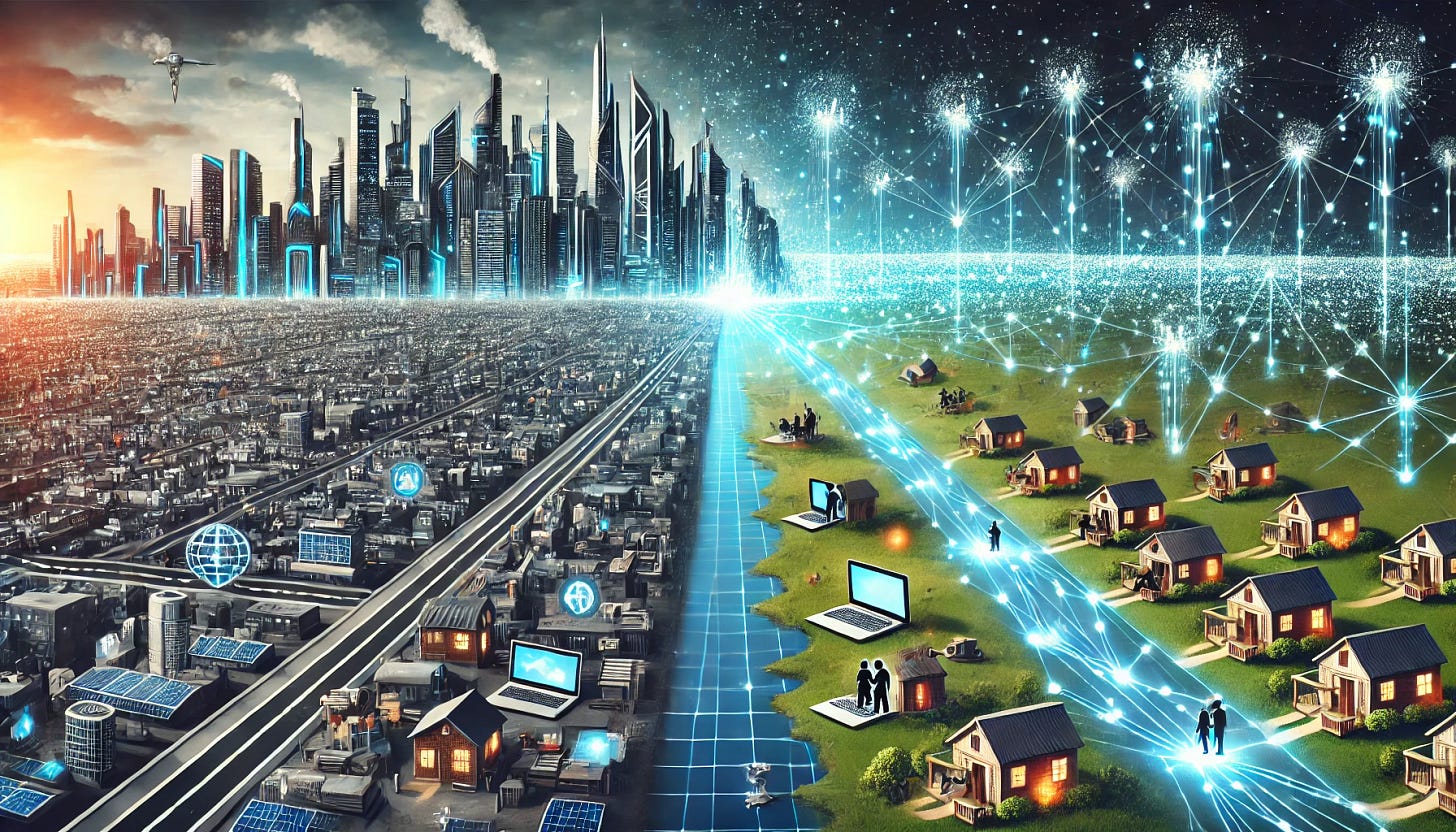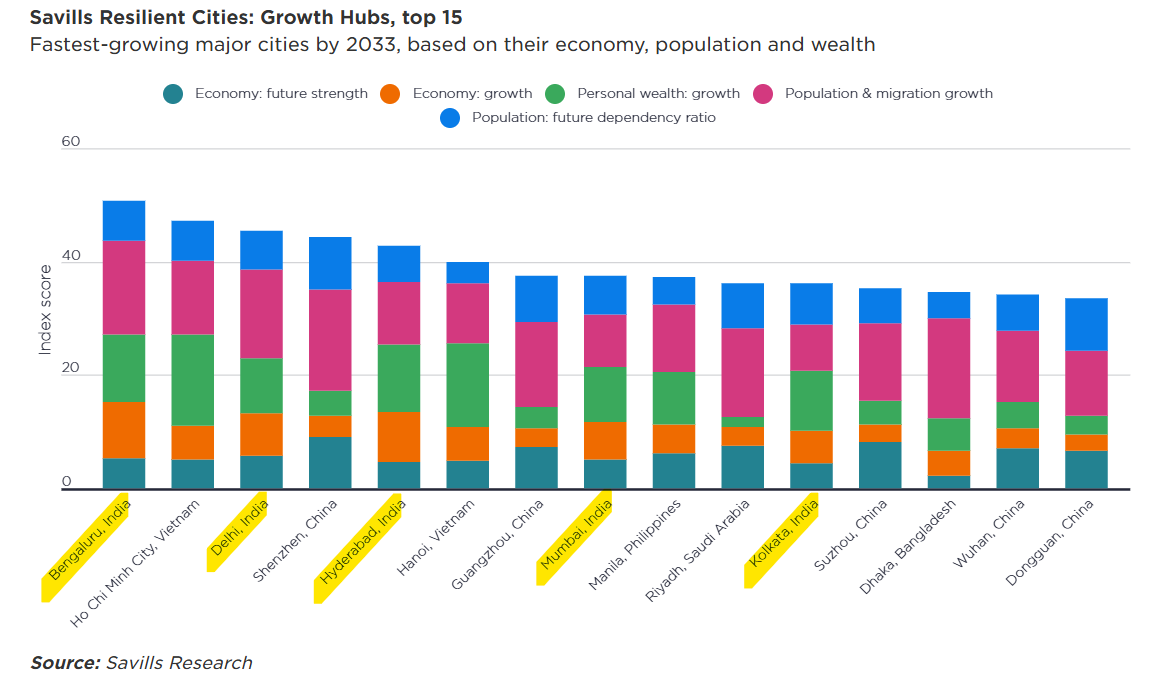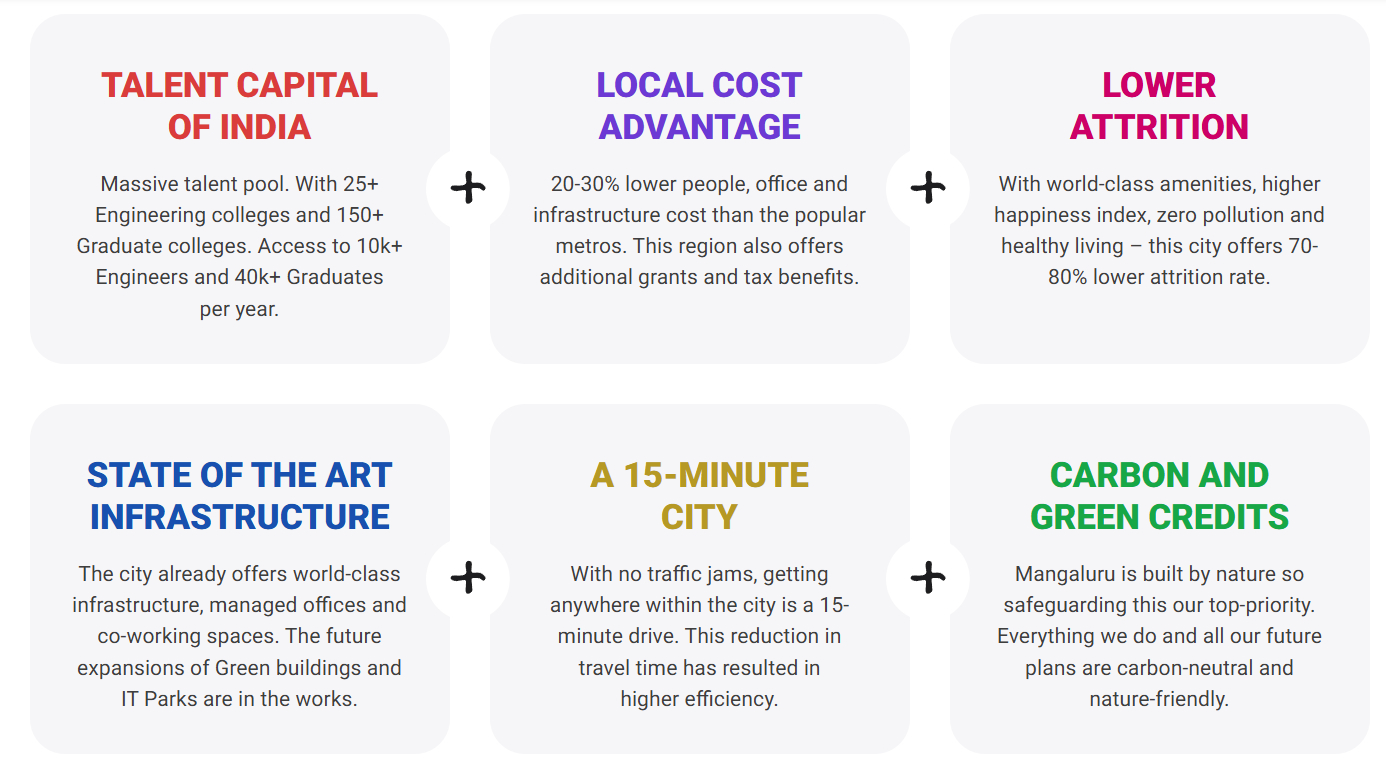Tech-Hub Decentralization - Needed or Much Needed?
We are seeing an increasing population density, degrading air quality and always skewed supply-demand for real-estate, housing markets making top tier cities gradually junky and slow to fix up.
I often run into random debates with my co-workers and friends about topics as such, being myself who have moved to Bengaluru from a smaller town for education and work. This much to me seems like a causing problem as a consequence of doing nothing and just allowing the natural order of chaos to take place, eventually leading to a lot of planning and strategies to fix. If the roads in the city center and residential areas are not straight and of same width, it’s a clear sign that things are let to follow their own order which eventually sacrifices someone’s everyone’s cost for someone’s gain.
India's top-tier cities are experiencing the fastest-growth globally with 4 out of top 10 cities falling in the list, topped by Bengaluru. While this is great, there is also a factor of population growth and migration that leads to this. Ideal case, nothing is off here - you may say.
But, while there is room for all the pies like personal wealth growth, economy future strength etc., can the city take in the population growth in a reasonable way? Because otherwise, this statistics would go off the charts.
(I also have an alternate thought here that the economy or rather people who drive the economy may get so efficient, leveraging AI tools that this growth would be fulfilled without the population growth factoring in! - so all cool and let’s skip this)
Why, what’s the need?
Try Namma Metro travel on a Monday morning - a great way to eat-the-frog and kickstart the week. There are posts like this for instance about congestion, chaos, and infrastructure overload. The rapid and continuing expansion of the technology sector, job opportunities and urban migration have led to an over-reliance on these urban centers. With roads choked with traffic, housing becoming unaffordable, and quality of life not doing great, the call for need has never been more pressing.
What’s tried and what more can give the drive?
The idea of remote/hybrid work has been around for a while now and is slightly a debated topic with extensive studies like this pointing that they often require deliberate planning. Keeping this aside, there are active attempts like the Silicon Beach Program to promote IT growth in costal Karnataka cities. Certain cities like Mangaluru have been way ahead of the curve in terms of education, healthcare but the lack of young talent retention holds it’s growth stagnated.
Through programs like Beyond Bengaluru by the KDEM, tier-2 cities are quickly joining the bandwagon. Mysuru now emerging as a major electronics system manufacturing hub, including global companies driving investments and jobs.
To navigate some of the challenges, government and urban planners with strong policies can help by considering:
Mixed-Use Zoning: Allowing residential, commercial, and retail spaces in close proximity to reduce long commutes.
High-Speed Rail & Road Transport: Connecting Tier-2 cities with metros through expressways and high-speed trains.
Tax Incentives for Companies: Offering tax breaks to IT, finance, and manufacturing companies that expand into smaller cities.
Affordable Housing: Providing incentives for builders to develop cost-effective housing in Tier-2 cities.
While all of these are possible and in a way getting tried out or going to, it is also a good time to rethink about urban migration. What really drives people, what do we leave behind and miss out, how can we not do it otherwise, what type of incentives or mindset shifts are required etc. There are also ideas like this recent post by Sunil Mysore titled ‘Decentralization Begins with Solar: The Path to Decarbonization’ highlights the usage of solar energy for domestic purposes and how it can be leveraged to create a sustainable ecosystem around us.
Some interesting reads:




